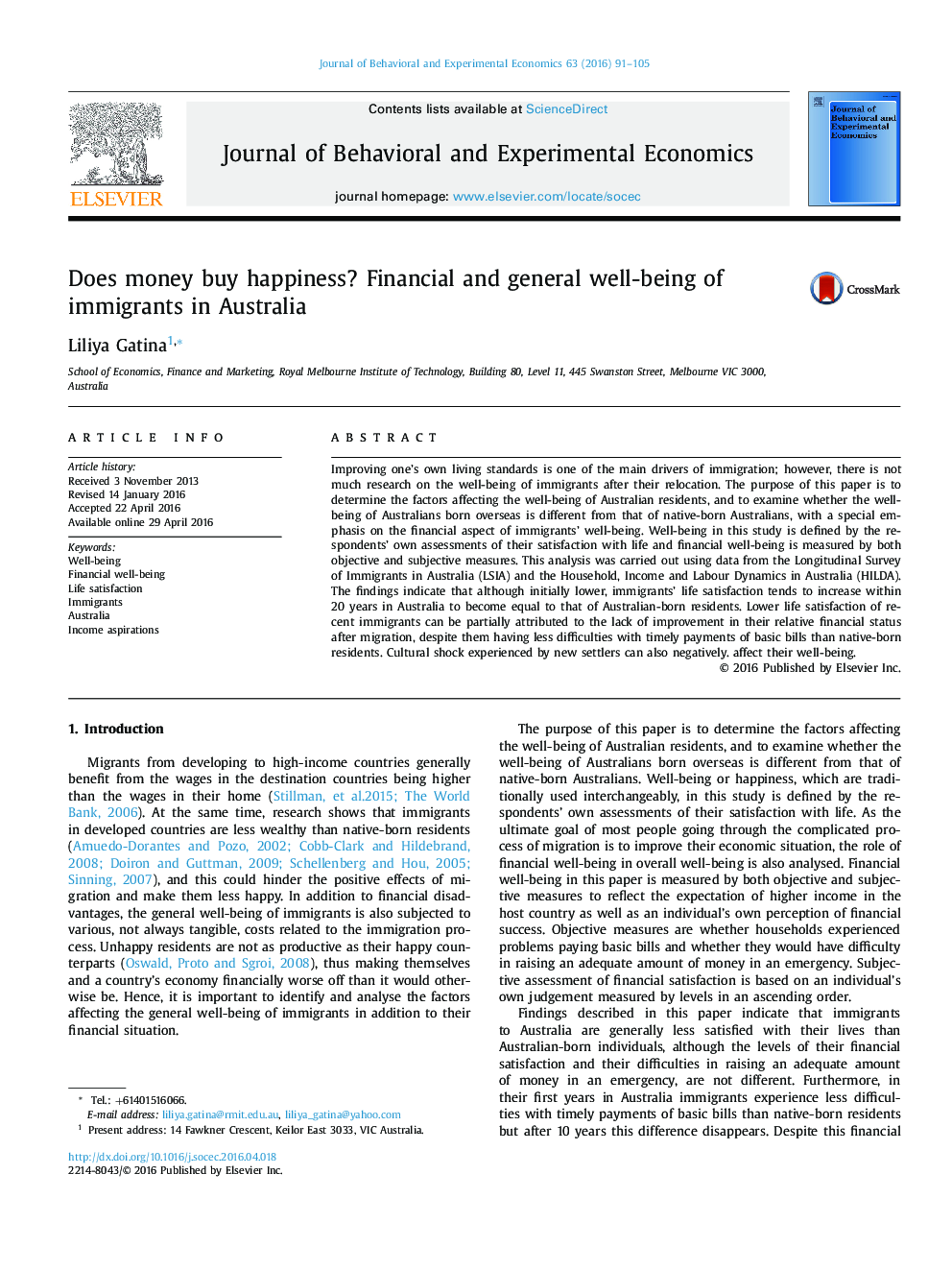| Article ID | Journal | Published Year | Pages | File Type |
|---|---|---|---|---|
| 881789 | Journal of Behavioral and Experimental Economics | 2016 | 15 Pages |
•New immigrants to Australia are less satisfied with their lives than other Australians.•Most aspects of financial well-being do not differ between immigrants and native-born.•The ability to pay bills of recent immigrants is better than that of other Australians.•Among new immigrants, Christian immigrants are happier than others.
Improving one's own living standards is one of the main drivers of immigration; however, there is not much research on the well-being of immigrants after their relocation. The purpose of this paper is to determine the factors affecting the well-being of Australian residents, and to examine whether the well-being of Australians born overseas is different from that of native-born Australians, with a special emphasis on the financial aspect of immigrants' well-being. Well-being in this study is defined by the respondents' own assessments of their satisfaction with life and financial well-being is measured by both objective and subjective measures. This analysis was carried out using data from the Longitudinal Survey of Immigrants in Australia (LSIA) and the Household, Income and Labour Dynamics in Australia (HILDA). The findings indicate that although initially lower, immigrants' life satisfaction tends to increase within 20 years in Australia to become equal to that of Australian-born residents. Lower life satisfaction of recent immigrants can be partially attributed to the lack of improvement in their relative financial status after migration, despite them having less difficulties with timely payments of basic bills than native-born residents. Cultural shock experienced by new settlers can also negatively. affect their well-being.
